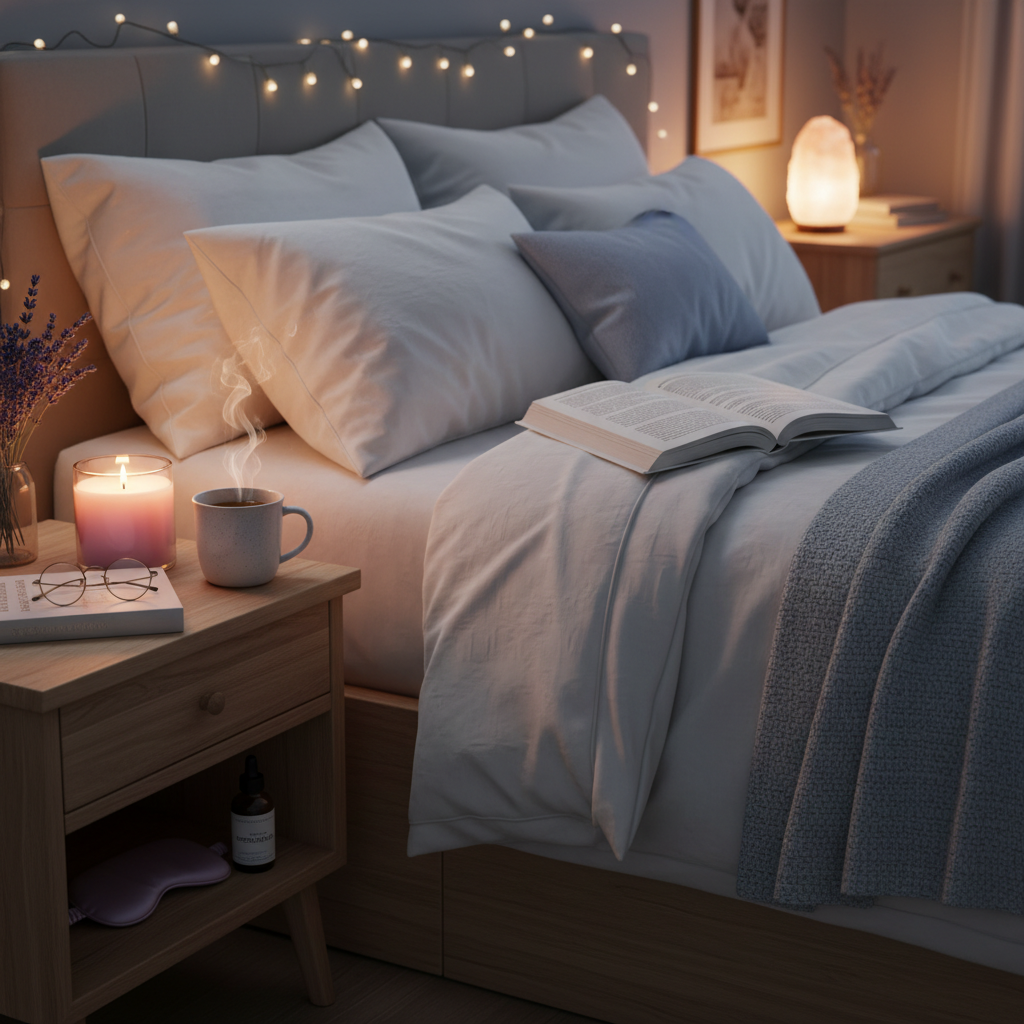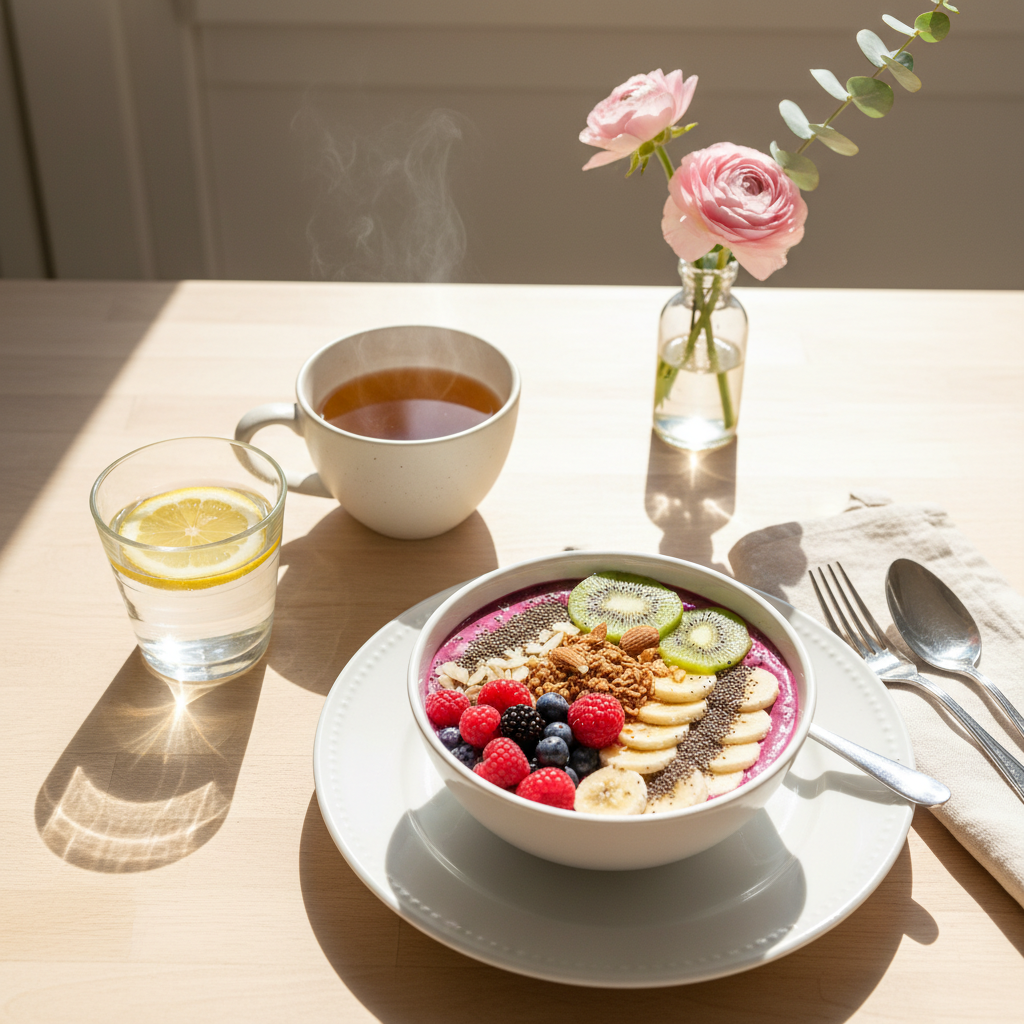Nighttime Self Care Checklist for Better Sleep

Why Nighttime Self Care Matters for Sleep
Quality sleep is essential for overall health; it’s like hitting the refresh button for your brain, mood, and immune system. According to the Sleep Foundation and research from Harvard University, maintaining consistent nighttime rituals and reducing exposure to light before bed significantly boosts melatonin production — the hormone responsible for signaling your body to sleep. Establishing a calming pre-sleep routine is key to synchronizing your body’s natural rhythm and enhancing sleep quality.

Your Easy Nighttime Self Care Checklist for Better Sleep
- Stick to a Consistent Sleep Schedule
Keep your bed and wake times regular—even on weekends—to regulate your circadian rhythm and train your body for optimal sleep. - Wind Down 30–60 Minutes Before Bed
Reduce screen time to avoid blue light exposure that suppresses melatonin. Opt for paper books, journaling, or listening to soft music instead. - Create a Relaxing Pre-Bed Ritual
Take a warm shower or bath, practice gentle yoga stretches, or try meditation. Incorporate soothing scents like lavender to signal your body that it’s time to rest. - Optimize Your Sleep Environment
Maintain a cool bedroom temperature around 65°F with blackout curtains and white noise machines to create an ideal atmosphere for sleep. Comfortable pajamas are also recommended. - Limit Stimulants and Heavy Meals
Avoid caffeine 4-6 hours before bedtime, steer clear of heavy meals 2-3 hours prior, and minimize alcohol intake for smoother sleep cycles. - Reserve Your Bed for Sleep and Intimacy Only
Keep your bed a designated sleep zone to help your brain associate it strictly with rest and relaxation. - Manage Stress and Set Worries Aside
Write down anxious thoughts or plans before bed and practice mindfulness or deep breathing to calm your mind. - If You Can’t Sleep, Get Up
If you’re unable to sleep after 20 minutes, engage in a quiet activity under dim lighting until you feel sleepy again.

Personal Tips & Insights
One life-changing habit was placing my phone in another room before bed, reducing distractions even though it initially felt uncomfortable. Adding a lavender-scented bath crafted a spa-like relaxation that primed me for sleep. Physical books, rather than screens, also helped me fall asleep faster. Friends and family who’ve tried these methods consistently report better sleep—and you can too.

A Sample Nighttime Routine to Try Tonight
- 8:30 PM: Turn off phones and screens for a digital detox.
- 8:45 PM: Enjoy a warm shower and skincare routine.
- 9:05 PM: Sip chamomile tea and journal to clear your mind.
- 9:15 PM: Perform gentle stretches and meditate for relaxation.
- 9:30 PM: Dim the lights and unwind with a book or soft music.
- 10:00 PM: Lights out and embrace restful sleep.
FAQs About Nighttime Self Care and Better Sleep
Q1: Can I substitute a shower with a bath?
Absolutely — both relax muscles and lower core body temperature. Baths add extra spa vibes for enhanced calm.
Q2: How long before bed should I stop looking at screens?
Aim to avoid screens 30 to 60 minutes before sleeping to protect melatonin production.
Q3: Can I exercise in the evening and still sleep well?
Yes, but avoid intense workouts within 2–3 hours before bedtime to prevent alertness.
Q4: Are daytime naps bad for nighttime sleep?
Short naps under 30 minutes early in the day are fine; avoid late afternoon naps to prevent insomnia.
Ready to reclaim your nights? Follow this comprehensive nighttime self care checklist for better sleep and wake up refreshed to conquer your day. Your future well-rested self will thank you.


